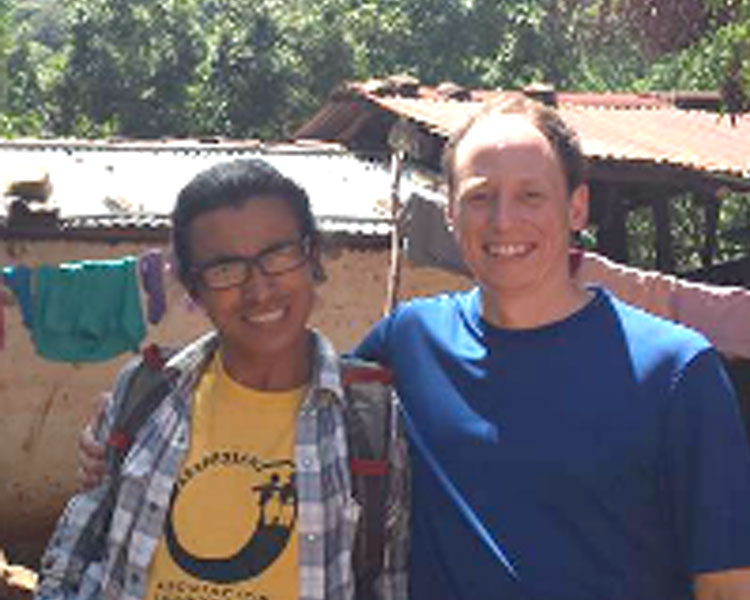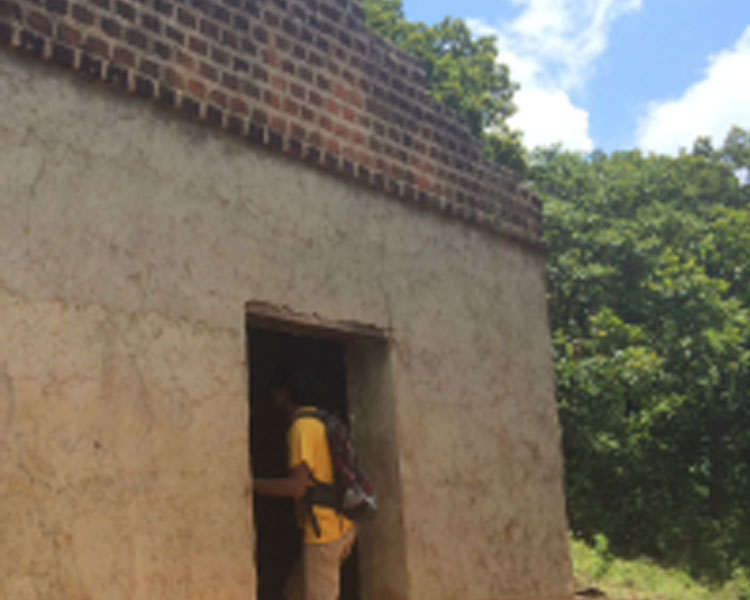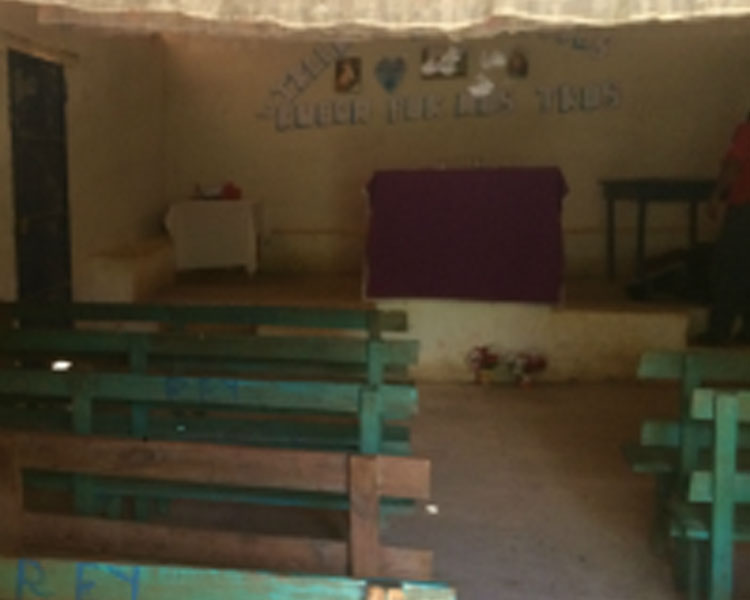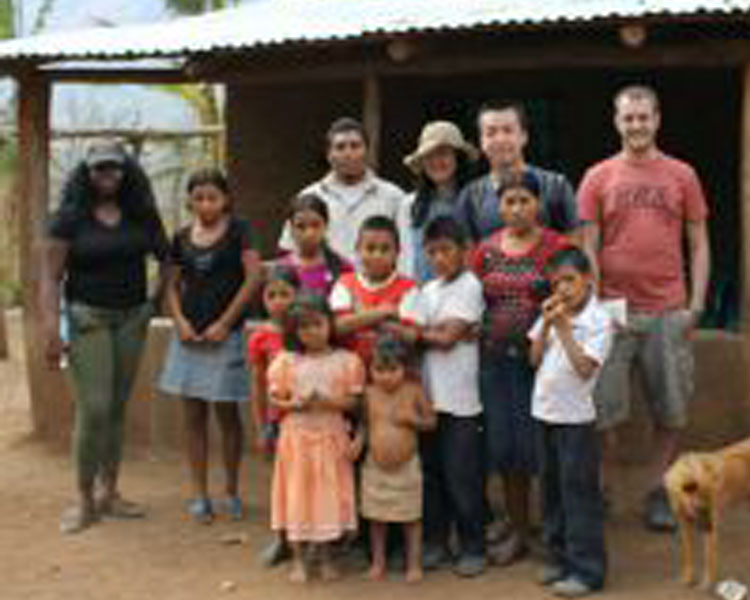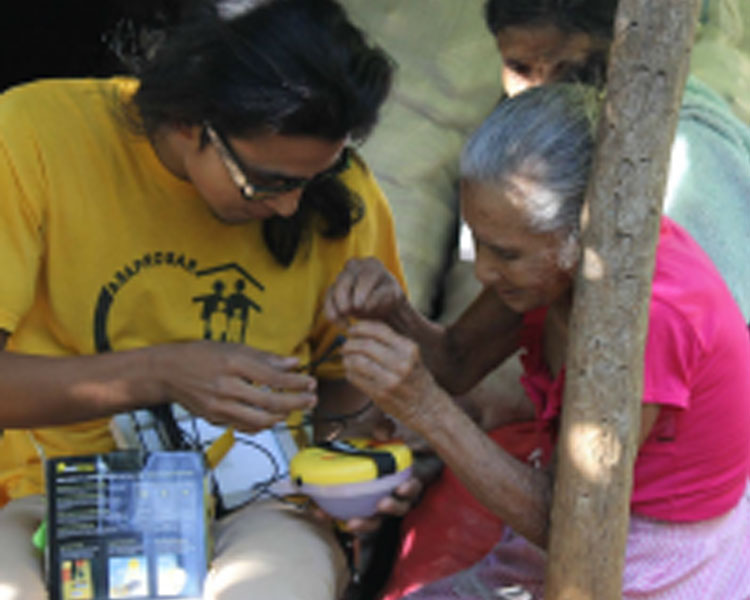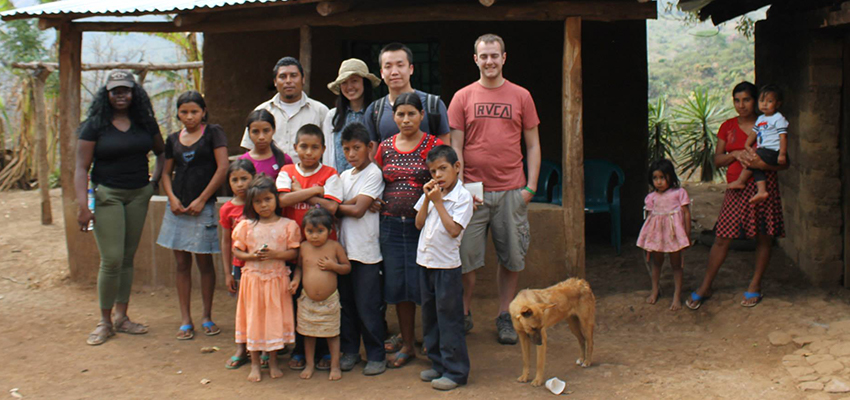
This August Libby Hsu and I travelled to El Salvador to work with long-time D-Lab community partner ASAPROSAR to assess the energy needs of the rural community, El Sauce.
While most of El Salvador has reliable electricity access, there is little prospect of the national electric grid being extended to El Sauce. The goal of this trip was to identify specific energy needs in the community, technologies to meet these needs, and practical approaches to distribute energy technologies in the community.
This work is part of a larger effort by the D-Lab's Energy Research Group to develop an assessment toolkit for working with community-based organizations such as ASAPROSAR, which are looking to provide increased energy access to the communities they serve. The toolkit consists of:
•Interview questionnaires for households and businesses
•A process for mapping the consumer product supply chain in the community
•A process for identifying key community institutions that can contribute/participate in increasing energy access in the community.
Current Energy use and expenditures
Following up on work done by the D-Lab: Energy class this past spring, we confirmed the need and affordability of solar lanterns with mobile phone charging capabilities for many individual households. Currently, most El Sauce residents spend ~$8 per month on kerosene for lighting and travel to the nearest town where they can charge their mobile phones for a $0.25 fee.
While many residents have a TV or radio charged by a car battery, the only way recharge the battery is to carry it over 20 minutes on foot to the nearest town. Due to the difficulty and cost (there is a fee for charging and the batteries typically need to be replaced once a year), this process it is not a popular option.
Through the household interviews we identified a specific church as a key community-gathering place in El Sauce. We then meet with a community organizer to learn about the church’s current energy use and needs. We found that the congregation spends ~$25 per month just on kerosene for lighting. We also found that church members are interested in being able to power a TV and DVD player so they could watch programs as a group, as well as a microphone and amplifier for playing music.
Solar energy products Identified
With this information we identified solar power and lighting systems that would be comparable to what residents currently spend on energy. An environmental NGO in the region sells a high quality solar lantern with mobile phone charging capability that fits the needs and budget of individual households. For the church, we identified a solar power and lighting system that will be able to provide four bright lights for the church, charging up to 10 mobile phones at a time, with 12 volt outputs that can power a radio, TV, or amplifier. These products all have an expected lifetime of over five years and have warranties ranging from two to three years.
Distribution strategies
In addition to interviews with residents of El Sauce, we conducted interviews with residents of nearby villages, shopkeepers in the nearby town, and retailers in the closest major city, Chalchuapa, in order to understand the supply chain for consumer goods. We found that most El Sauce residents rarely shop at stores in the nearby towns, and instead take a two-hour bus ride to do their shopping every two weeks in Chalchuapa where prices are lower. Thus, it would be challenging for a local store to effectively sell solar lighting products to El Sauce residents. Discussions with electronics retailers in Chalchuapa revealed that they are more focused on products that have wider appeal in the cities and more developed areas of El Salvador.
Given the challenges described with typical retail distribution, we discussed with ASAPROSAR the possibility of incorporating the distribution of solar energy products into their current program activities. Since ASAPROSAR staff members regularly visit El Sauce, they would be able to handle the physical distribution of the products.
We are also working with ASAPROSAR’s microfinance team to set up one-year loan programs specifically designed for households to purchase solar lanterns, and for the church congregation to purchase a larger solar lighting and power system. This will allow the community to redirect funds towards solar energy products without significantly affecting their monthly budgets. Once the products have been paid for, the households and church community will begin to reduce their monthly energy expenses
Next steps
ASAPROSAR is planning to begin distributing solar energy products in El Sauce in the coming months. Libby and students from the D-Lab: Development class will check in on the progress and impact of the products on the community during their trip to El Salvador in January.
I am currently in Mali conducting a larger scale energy needs assessment with our partner Mercy Corps, in three regions across the country. The feedback and insights gathered by working with ASAPROSAR in El Sauce have been extremely valuable for improving the assessment toolkit, training the data collection team, and shaping the study design for our work in Mali. I’m looking forward to analyzing the results from this ongoing assessment and using the results to develop programs Mercy Corps can use to increase energy access in rural Mali.
--------------------------
Email Eric Verploegen, Research Engineer, Food-Water-Energy Lead
